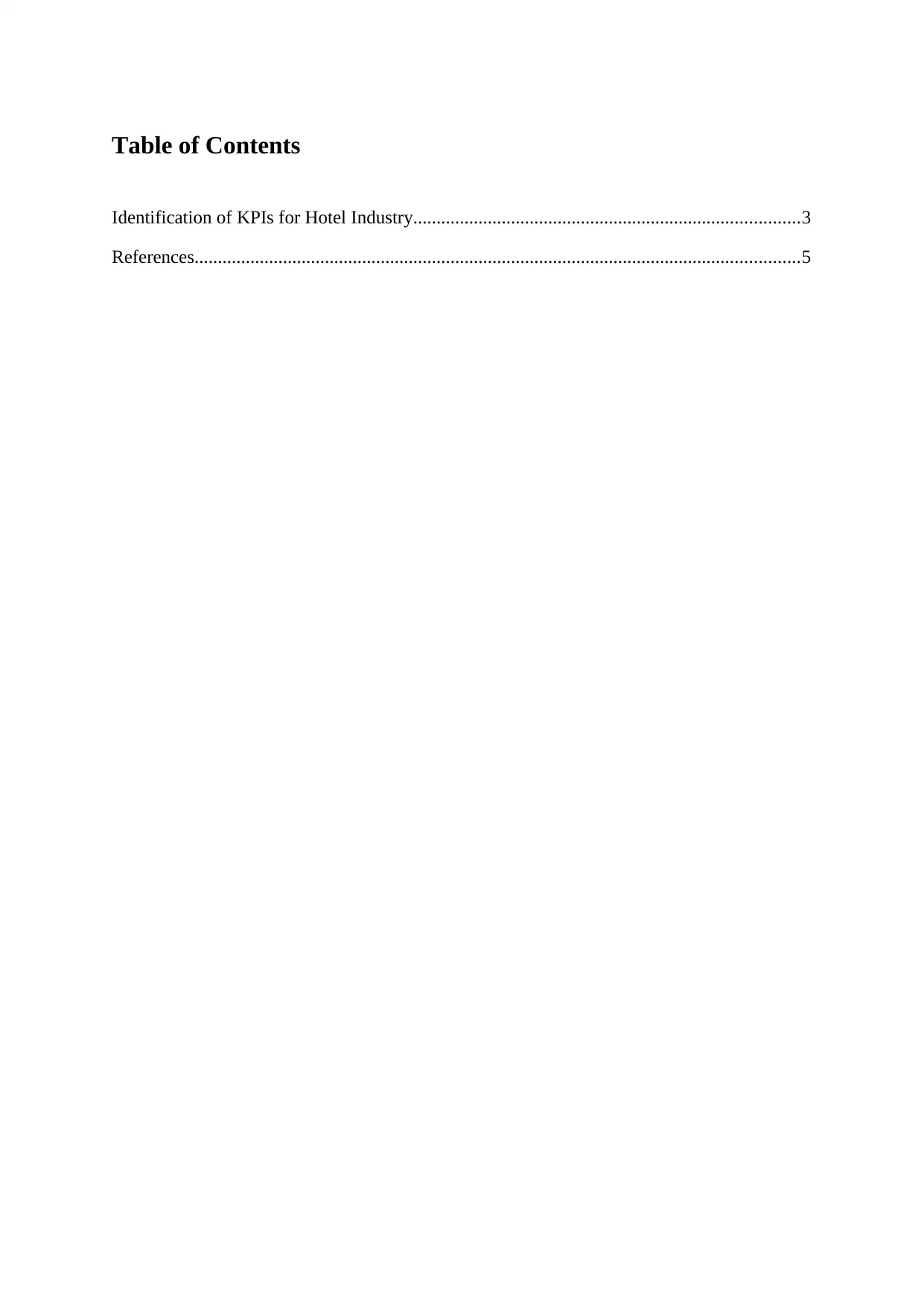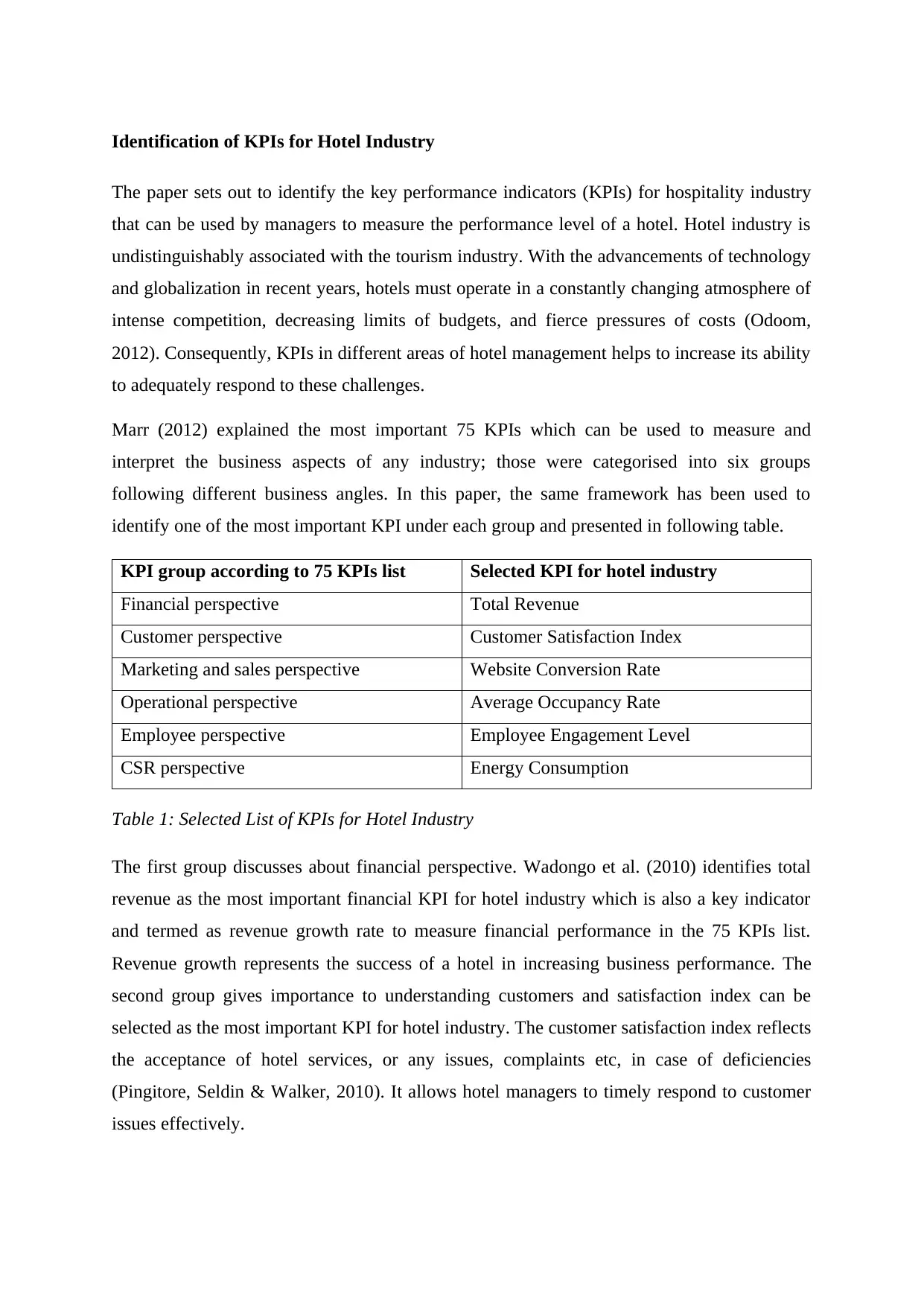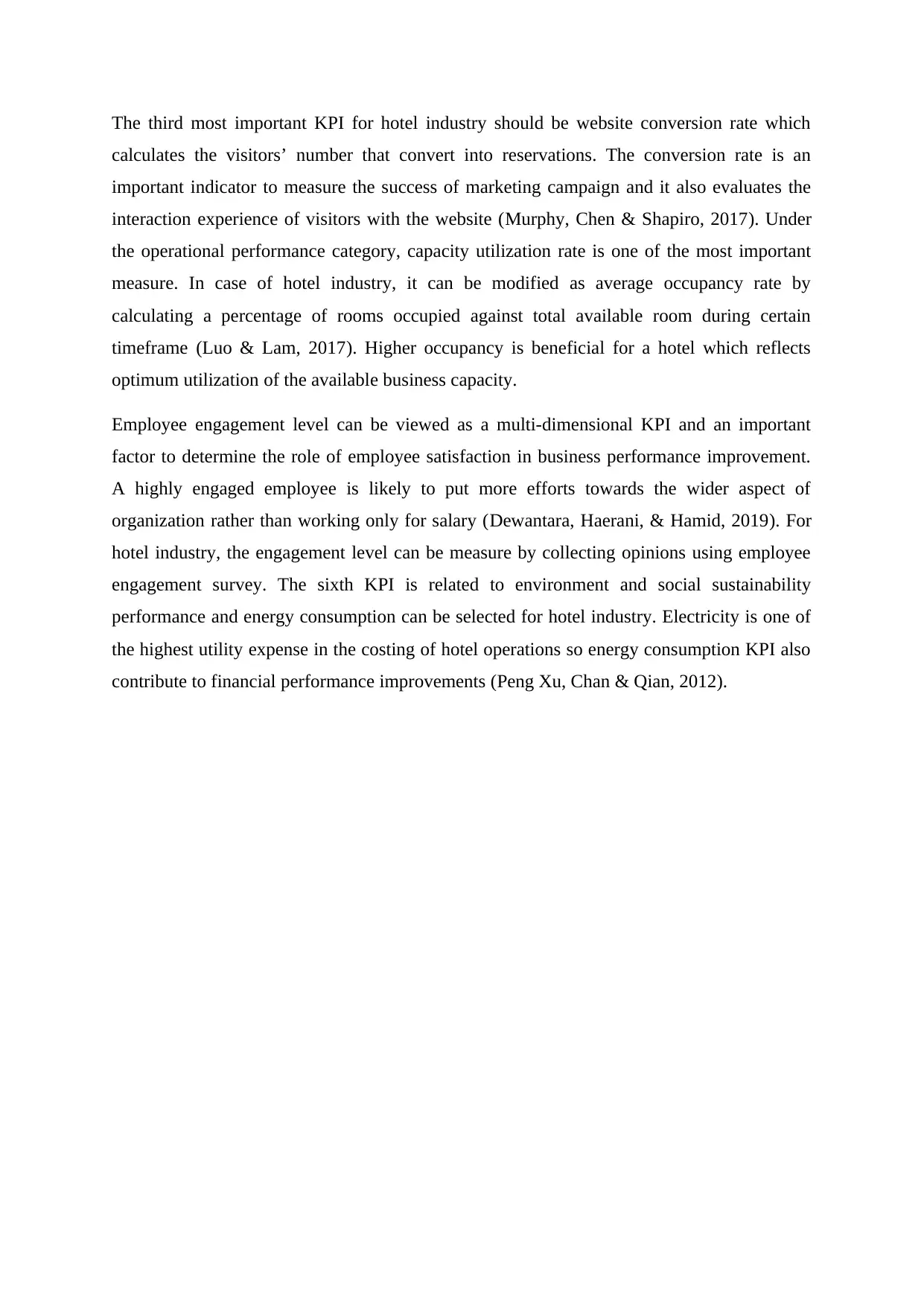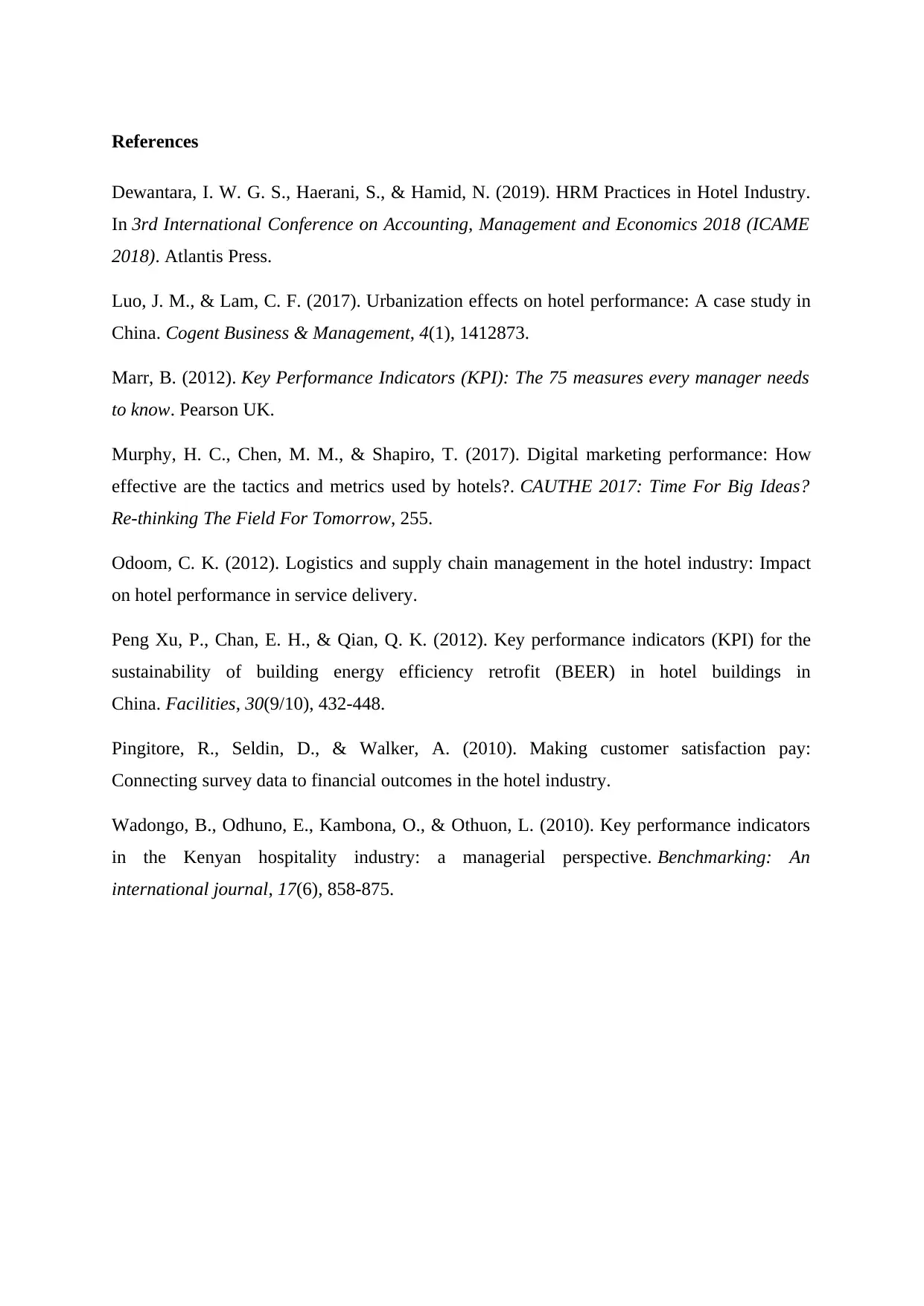Analysis of Key Performance Indicators in the Hotel Industry Report
VerifiedAdded on 2022/10/09
|5
|946
|52
Report
AI Summary
This report provides an analysis of key performance indicators (KPIs) relevant to the hotel industry. It identifies essential KPIs across various perspectives, including financial performance (total revenue), customer satisfaction (customer satisfaction index), marketing and sales (website conversion rate), operational efficiency (average occupancy rate), employee engagement (employee engagement level), and corporate social responsibility (energy consumption). The report references relevant literature to support the selection and importance of each KPI, offering a framework for hotel managers to measure and improve their performance in a competitive and evolving market. The paper highlights how these KPIs can help hotels respond effectively to challenges such as intense competition, budget constraints, and cost pressures. The report uses a structured approach, categorizing KPIs based on different business angles, to provide a comprehensive overview of hotel performance metrics.
1 out of 5












![[object Object]](/_next/static/media/star-bottom.7253800d.svg)